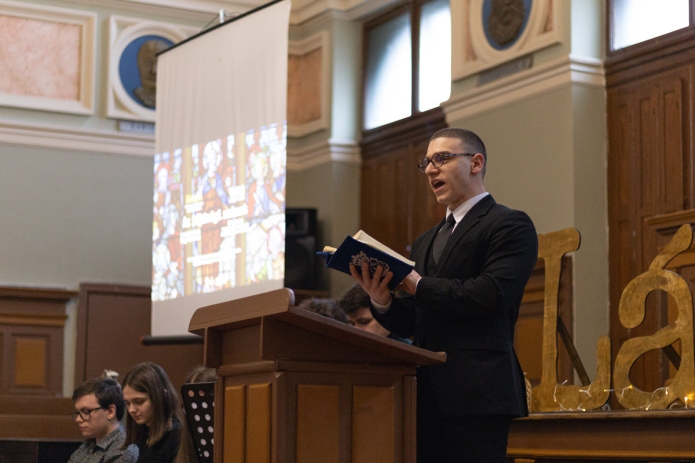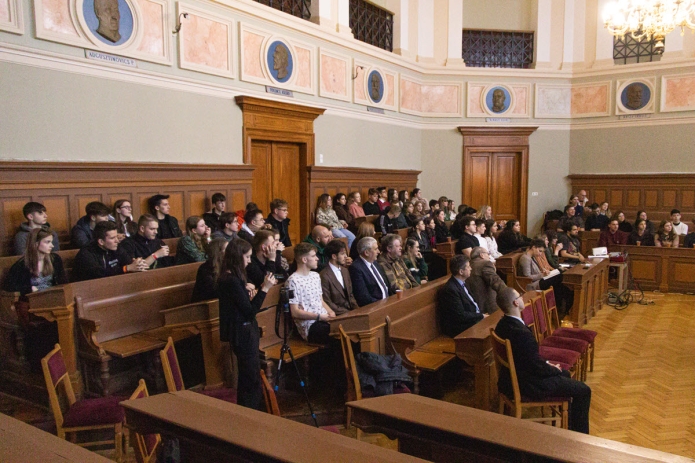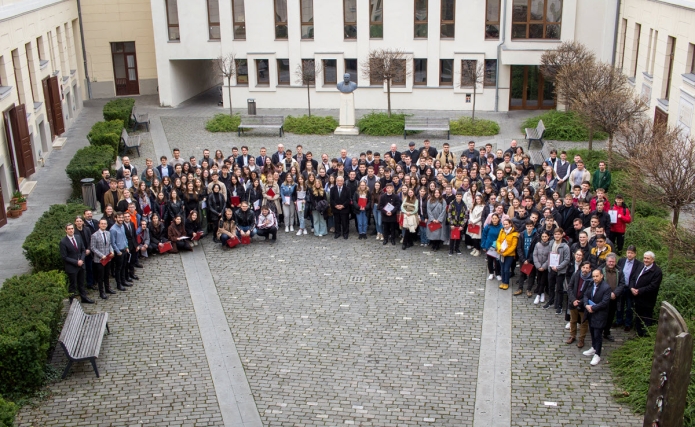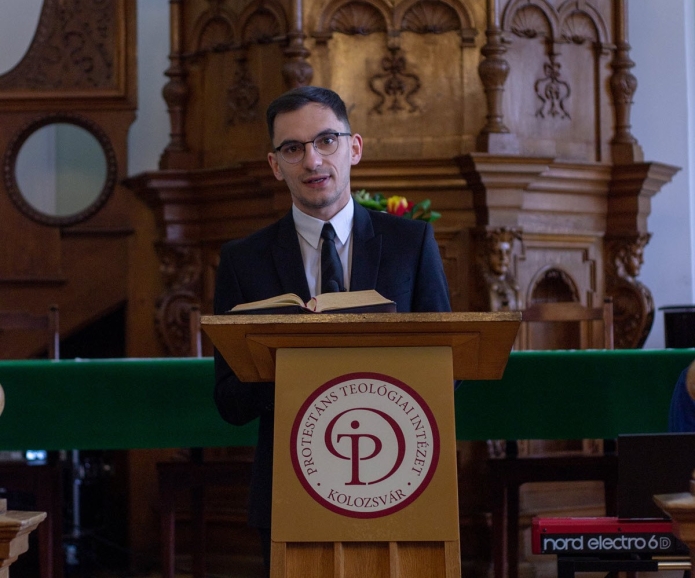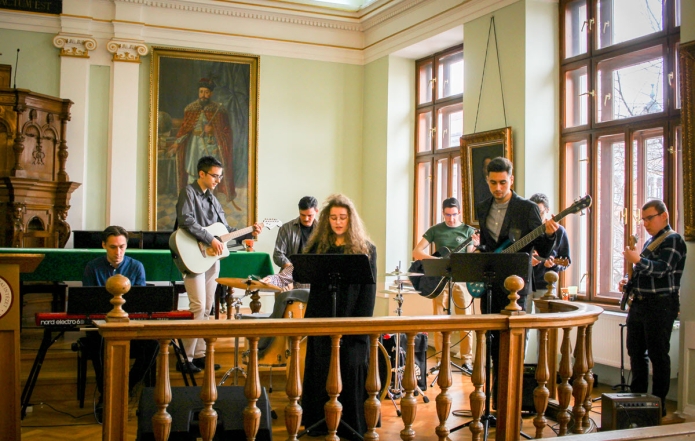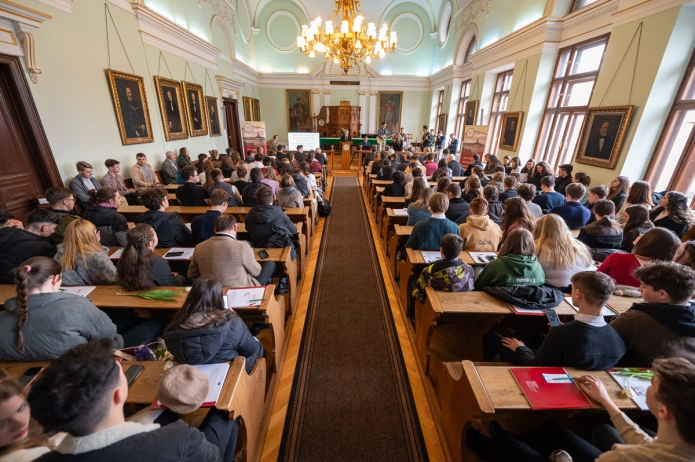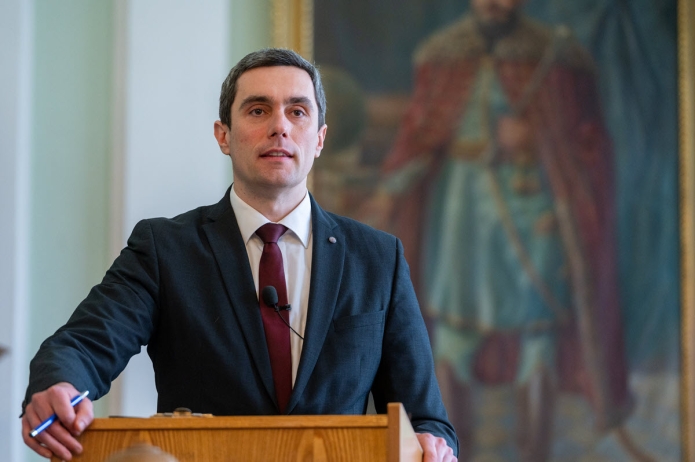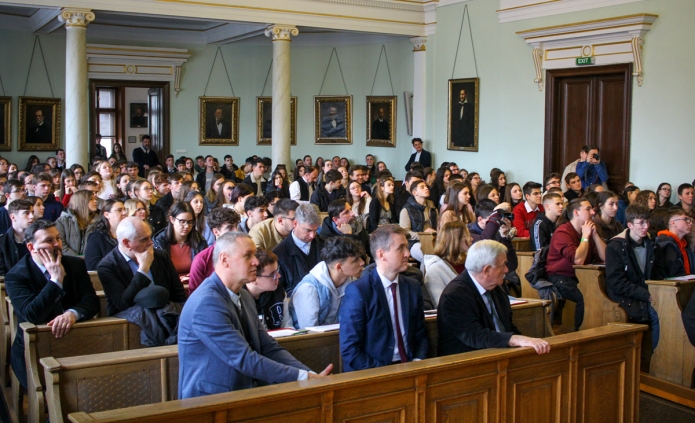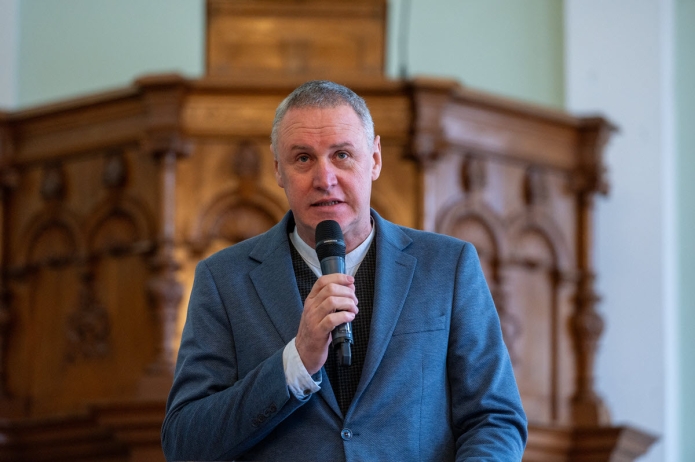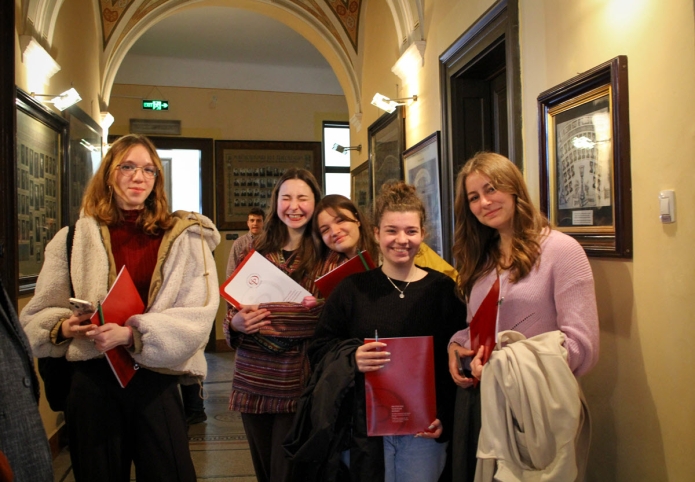This year, on March 8th, our Institute organized its annual open day event to promote and showcase its educational programs. The event was attended by 155 students and 14 accompanying persons, ministers and teachers.
The Open Days attracted a significant number of young visitors
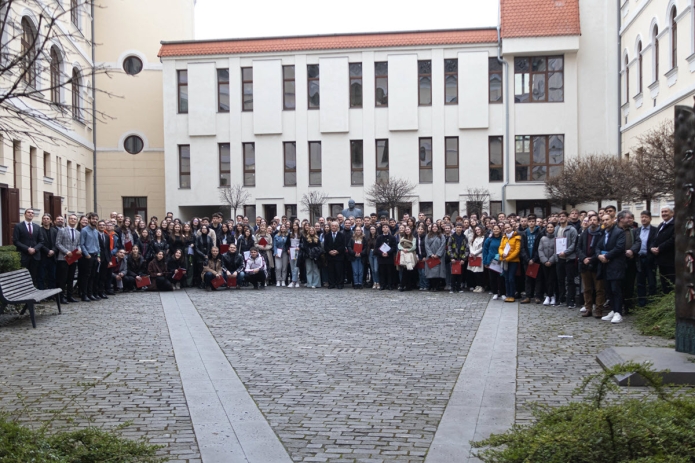
This year the Theological Institute’s Open Day attracted significant interest. The event on March 8th was attended by 155 students and 14 accompanying ministers and teachers. In Transylvania, many faculties, including those with Hungarian affiliations, struggle with student shortages. They aim to counterbalance this with promotional methods among other strategies. Although a theological institute's primary aim is not necessarily to market the "interesting" nature of its educational offer, it still strives to present its offerings as a genuine opportunity for at least the community of young believers aiming to shape a better world with a set of Christian values. This goal was served by the open day program, now organized for the second time.
After the initial program setup, registration began at the end of January. Three weeks before it was clear that a large-scale event was in preparation, expecting a large number of high school students. Consequently, the concept and program had to be continuously adjusted and expanded. Eventually, 155 high school students and 14 accompanying ministers and teachers participated. Among the attendees were 110 Reformed and 39 Unitarian students. There were also a few from the Roman Catholic, Greek Catholic, and Pentecostal churches. In total, 87 women and 68 men attended, most (84 students) arriving from high schools with a Reformed background.
The reception of this large group was prepared by 7 teachers, more than 40 volunteer students, and other institute staff members, coordinated by Szabolcs Kató. The event began with a devotion led by István Telegdi, a 2nd year MA theology student, delivering a short sermon on the Gospel of John 15:12–15. He emphasised that the foundation of pastoral service is love, Christ’s self-sacrificing love for us, and brotherly love towards the community members. Theology must connect the old and the new, Israel and the church, the two-thousand-year-old Scriptures and the modern world. This was also the aim of the devotion, which included youth hymns and organ music in the liturgy.
In his welcoming speech, Sándor Kovács, rector of the PTI, greeted the guests with Romans 11:29, emphasizing the irrevocability of God’s calling. He expressed his gratitude and joy that so many responded to the event’s invitation and hoped that the divine call would be strengthened in some of the attendees.
Following the rector’s welcome, a forum discussion took place where Béla Kató, the bishop of the Reformed Church District of Transylvania, shared his personal journey to ministry, giving voice to how young people might discover their divine calling. He stressed the importance of self-awareness and commitment to the community. In response to a student’s question about whether there will be changes in the ratio of admissions for men and women, Bishop Kató expressed his openness but also referred to the complexity of the issue and the practical problems raised by such decisions within the Transylvanian churches. In the group of Unitarian students, the meeting with church leaders continued in the afternoon, discussing several issues with Bishop István Kovács.
After the forum discussion, the students, divided into six groups, each attending two separate short classes with some theological topic, a guided tour showcasing the institute’s facilities, library and participated in other meetings with the student body.
The selection of topics for the presentations was an important aspect, aiming to be constructive for the spiritual and intellectual well-being of the arriving students. Thus, the lecture by Éva Éles on “Vocation under one roof. The relevance of the story of Mary and Martha”, or the topic presented by Szabolcs Ferencz Kató, “The emphases of the First Book of Moses”, contained numerous biblical messages beyond the transfer of information. János Simon’s lecture aimed to provide guidance to young people struggling with the current and often acute problem of separating from their parents, while Levente Horváth’s interactive self-awareness exercises aimed to advance the audience on the path of self-knowledge and knowledge of God.
The discussion with theology students raised questions related to the Theological Institute and the life of a theologian, such as how difficult studying is, what to do if one is interested in religious studies, how to recognize one’s calling, what happens after completing theological education, and many other intriguing questions. It was a good opportunity to get to know the visiting students more closely.
The program for the Reformed students concluded with a communal lunch, where the conversation between theologians, students, teachers, and pastors continued in an informal atmosphere.
The Unitarian faculty organized additional afternoon activities for their church’s students. After the bishop’s discussion and institutional presentation, Botond Koppándi gave a direct lecture on the power of the word. Starting from the Greek cultural sphere and through the practice of the early church, he described how the human and divine word shaped communities, and through personal examples of service, he wanted to show the young audience how the words spoken on God’s behalf through preaching, pastoral care, and family visits often have a significant impact on the lives of congregation members. This was followed by a devotion led by Norbert Nagy, a 2nd year MA student, who also illustrated the formative, unifying power of the residential community with personal experiences. The event concluded with an informal quiz night after a communal dinner.
We are aware that not every high school student who attended the open day wants to become a minister. Many are still uncertain, others are sure they do not want to pursue a pastoral career, but they came out of curiosity. Whatever the reason that brought 155 students to us, the welcoming team greeted them with sincere openness and tried to impart something that would either inspire them regarding the pastoral vocation or strengthen their relationship with the church. The feedback from the participants indicates that, one way or another, the event achieved its goal.
